Outdoor sink ideas – upgrade prep space to make alfresco cooking and entertaining a breeze
Take your outdoor kitchen or utility space to the next level by installing an outside sink and tap

Sign up to our newsletter for style inspiration, real homes, project and garden advice and shopping know-how
You are now subscribed
Your newsletter sign-up was successful
Alfresco mealtimes are all part of the fun of summer, with time spent cooking, eating and entertaining outdoors with family and friends. And if the warmer weather has you thinking about upgrading your open air kitchen and prep space in time for summer, then outdoor sink ideas are well worth thinking about now too.
An outdoor sink and tap is a useful addition to any outdoor kitchen idea or prep space that will improve its functionality no end. Having a supply of fresh water and a basin close to hand will save the time and effort of traipsing in and out of the house constantly when cooking or hosting guests, whether it's topping up drinks, rinsing salad and veg, washing plates and dishes or cleaning up barbecue tools.
Outdoor sink ideas
Installing an outdoor sink can vary from DIY options and off-the-peg buys that are easy to fit yourself, to built-in outdoor kitchens or bespoke garden bar set-ups that will need plumbing in by a professional. But whichever arrangement you choose, having a water supply and sink top space handy will make life easier and your outdoor prep space run more smoothly.
1. Keep it simple with a modular sink unit
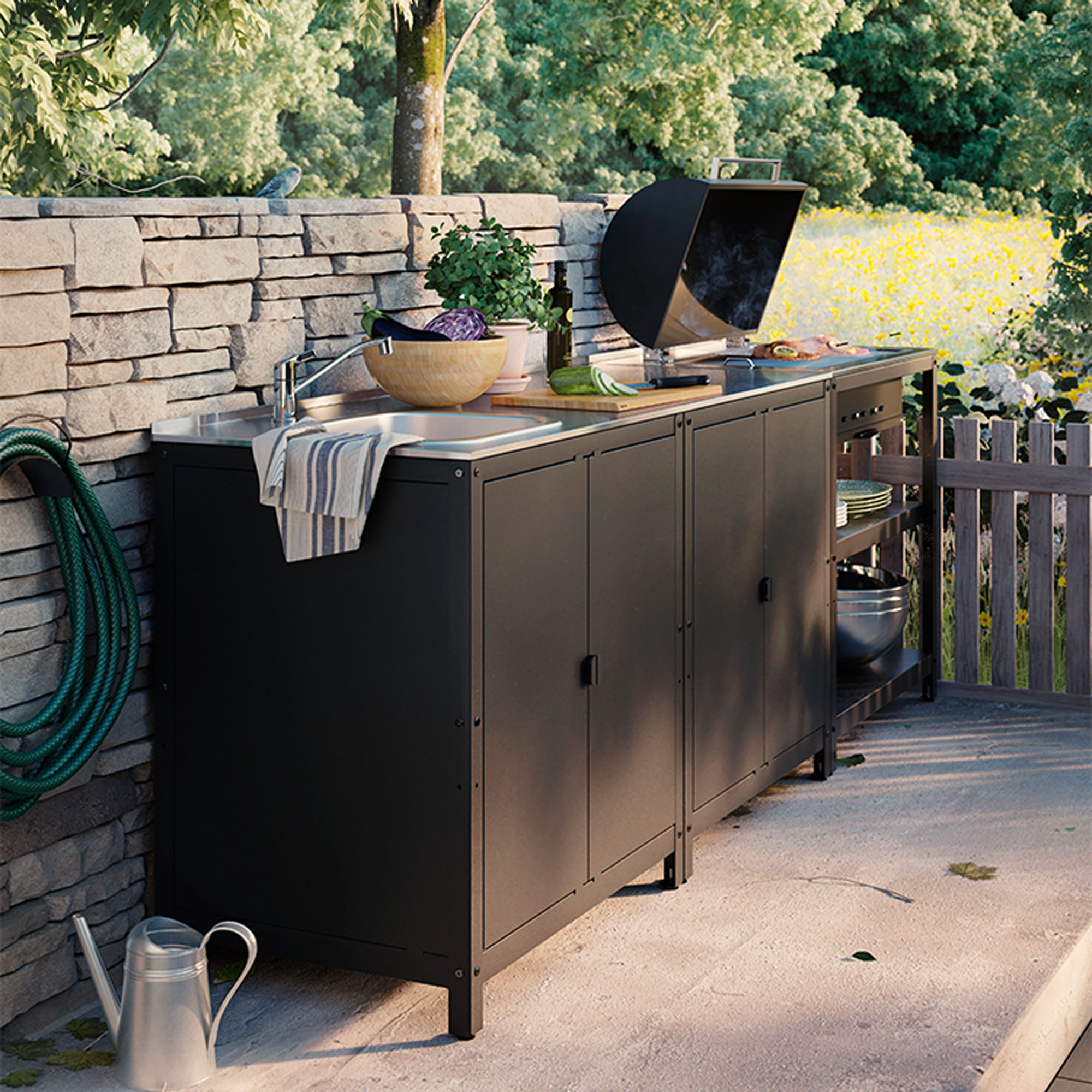
For a non-permanent sink set-up outdoors, consider a freestanding unit that can be stored away in a garden shed or garage over winter. This is the perfect solution for a summer garden party idea for entertaining with ease. Individual flat-pack units like this can be bought separately - such as the sink unit, kitchen cabinet and grill section - and can be easily assembled and set up on a patio or terrace to suit the layout.
Sink and worktops are made of stainless steel, so are easy-clean and won’t rust when left outside over the summer months. For running water the tap simply needs to be connected to a garden hose, while the waste pipe runs to an outside drain so that the sink can drain away.
2. Plumb-in your own basin
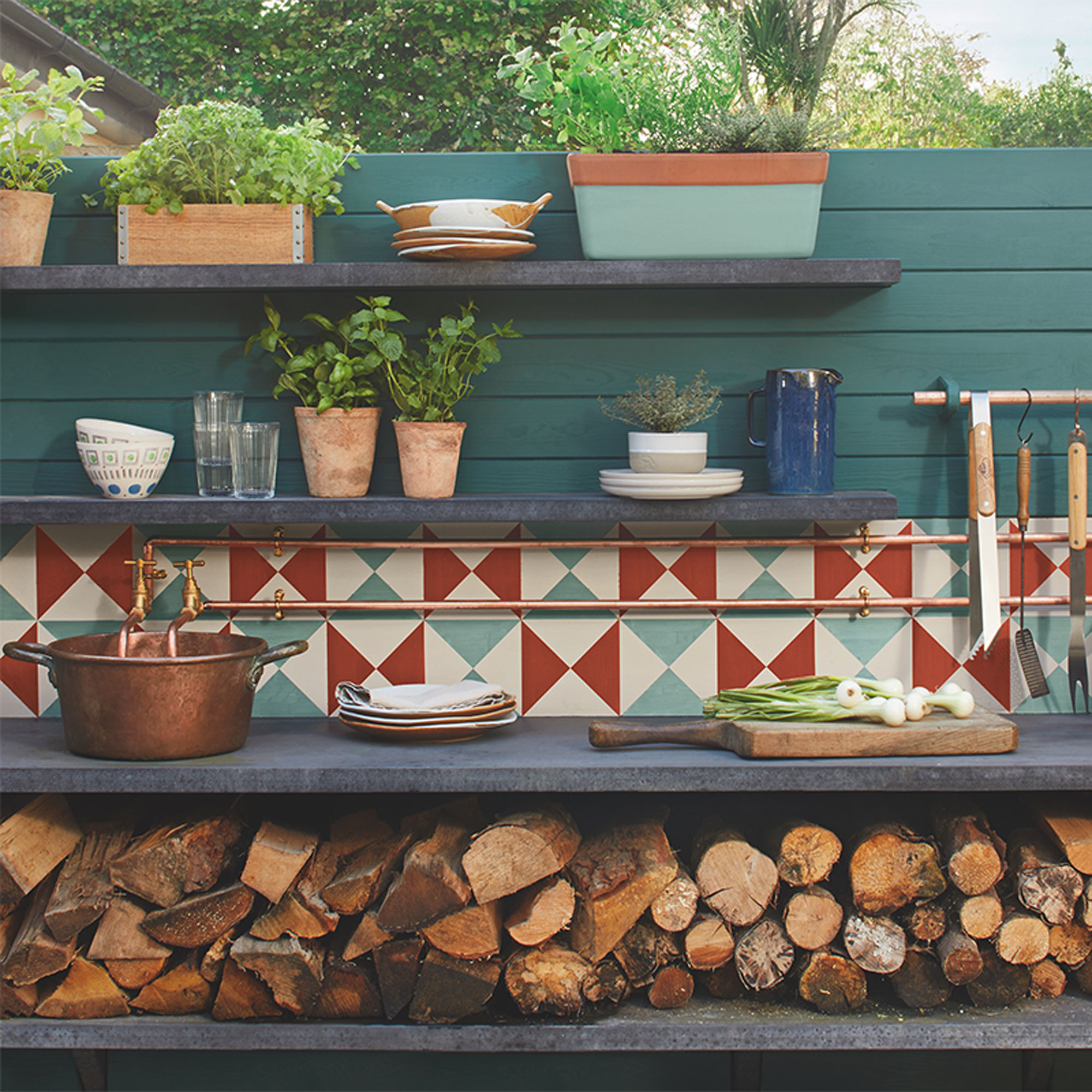
For a basic set-up that will provide handy fresh running water in the prep area of an outdoor kitchen, then consider this simple DIY installation. See our step-by-step guide for how to build an outdoor kitchen, complete with sink to create a sociable and practical open-air kitchen.
Provided there is already an outdoor water source, all that’s required is a little extra plumbing work to run pipes to worktop level, with wall-mounted taps then positioned above a removable basin. With no waste pipe, the bowl will need regular emptying into an outdoor drain, but a copper bowl and exposed pipework adds a rustic touch and quirky charm and it won’t cost a fortune to organise.
Sign up to our newsletter for style inspiration, real homes, project and garden advice and shopping know-how
3. Supersize the sink
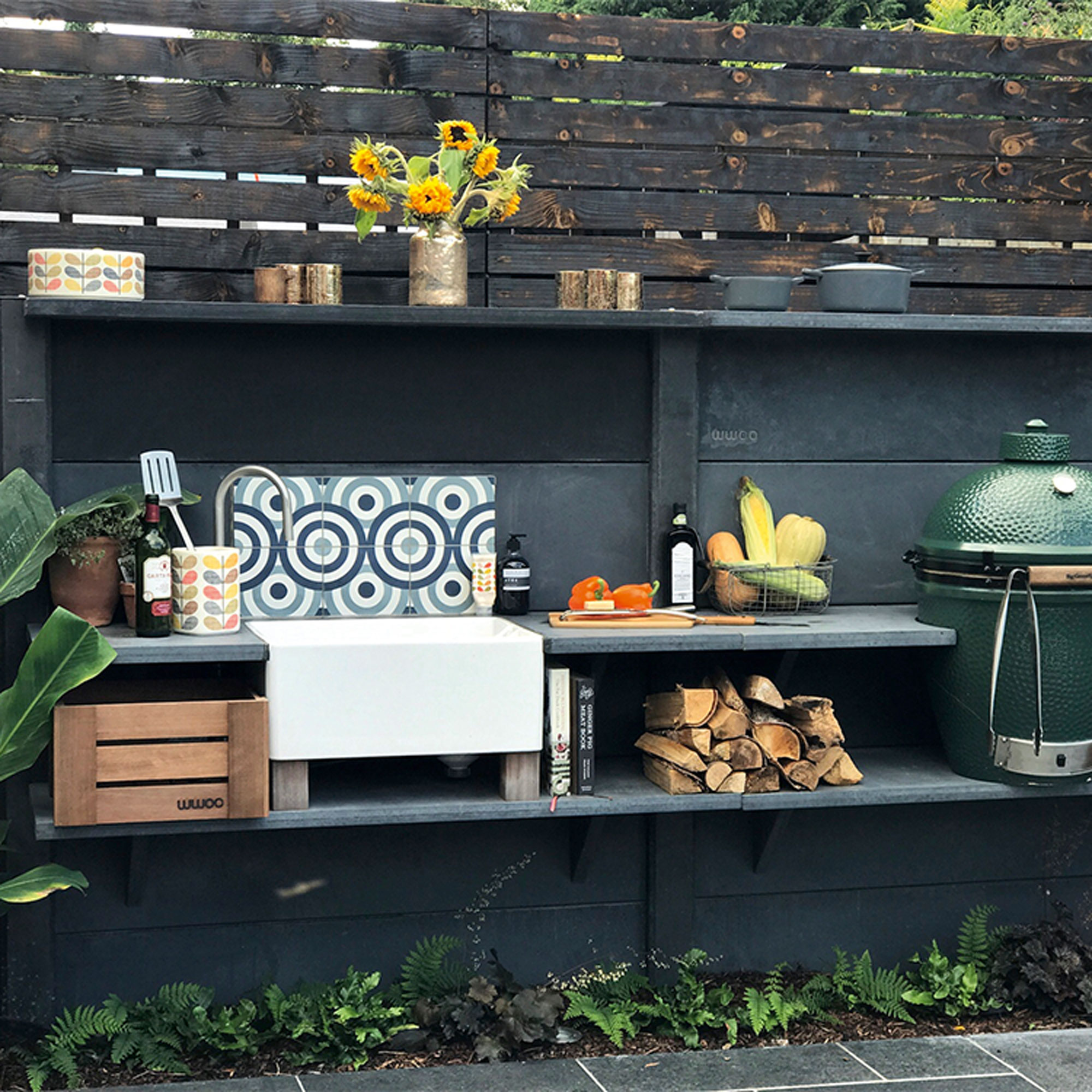
If lack of space isn’t an issue when installing an outdoor sink in your garden, then bigger is best. A generously-sized sink will be able to cope with larger items, such as grill racks, pans and serving platters, or it can be filled with bags of ice to act as a cooler for bottles and cans when entertaining.
A classic Butler sink, with its generous depth and sturdy qualities, is ideal for an outdoor kitchen. Mix-and-match by setting it into a contrast concrete worktop with a vintage-look tiled splashback adding to the relaxed, laidback outdoor vibe.
4. Integrate the sink and worktop
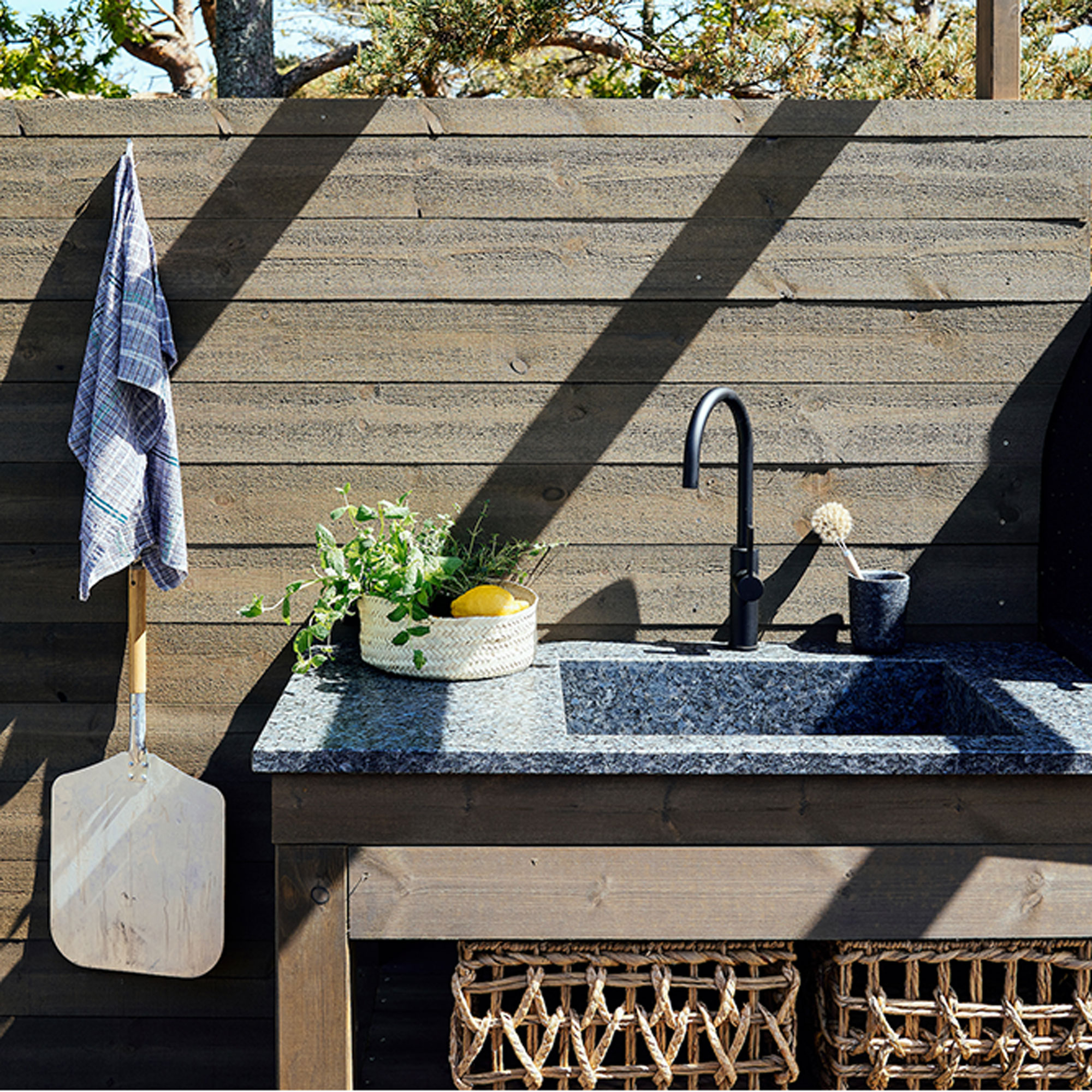
A permanent outdoor kitchen and sink set-up will have to cope with the elements year-round so needs to be super hard wearing and durable. Natural materials like stone, quartz and concrete are tough and impervious to the weather and opting for an integrated sink in the same material as the kitchen worktop idea gives a seamless surface that will blend better with its surroundings.
Ideal for an outdoor kitchen, a Norwegian stone worktop like this one is resistant to fading, heat, stains, and weather damage and is easy to clean and maintain. One downside to a stone sink is its weight, so you’ll need to beef up the countertops with extra support underneath.
5. Opt for all mod cons
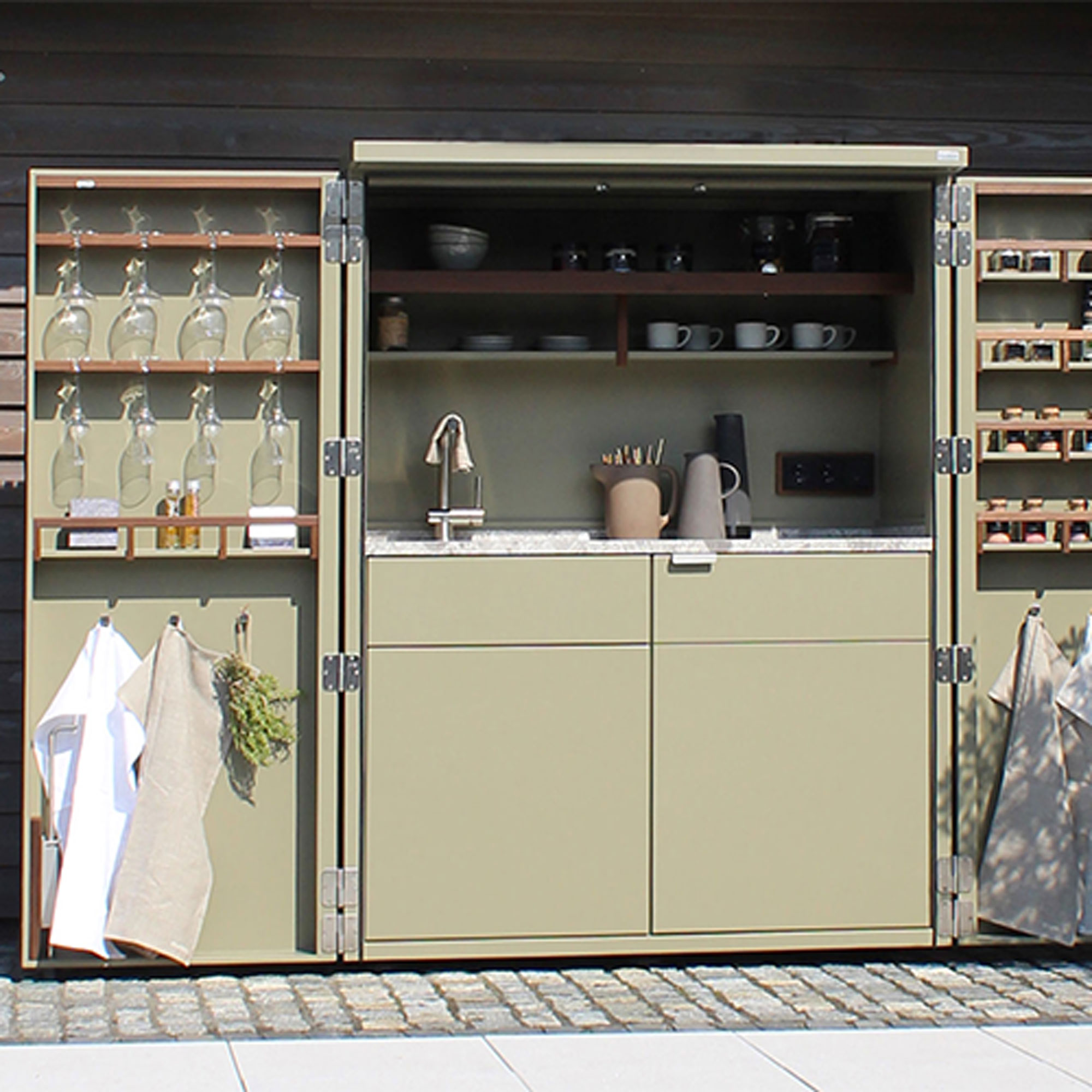
Go for a fully-integrated option with this neat all-in-one outdoor kitchen that incorporates all the essentials in one compact unit. Complete with integrated sink and dishwasher, plus storage racks, shelving and cupboards, it means crockery and glassware can be washed and stored in situ.
And another innovative feature of this all-in-one kitchen is that it can be closed up fully when not in use, with doors that make it completely weather-resistant, so you won’t have to worry about it over the winter months.
6. Plan the perfect set-up
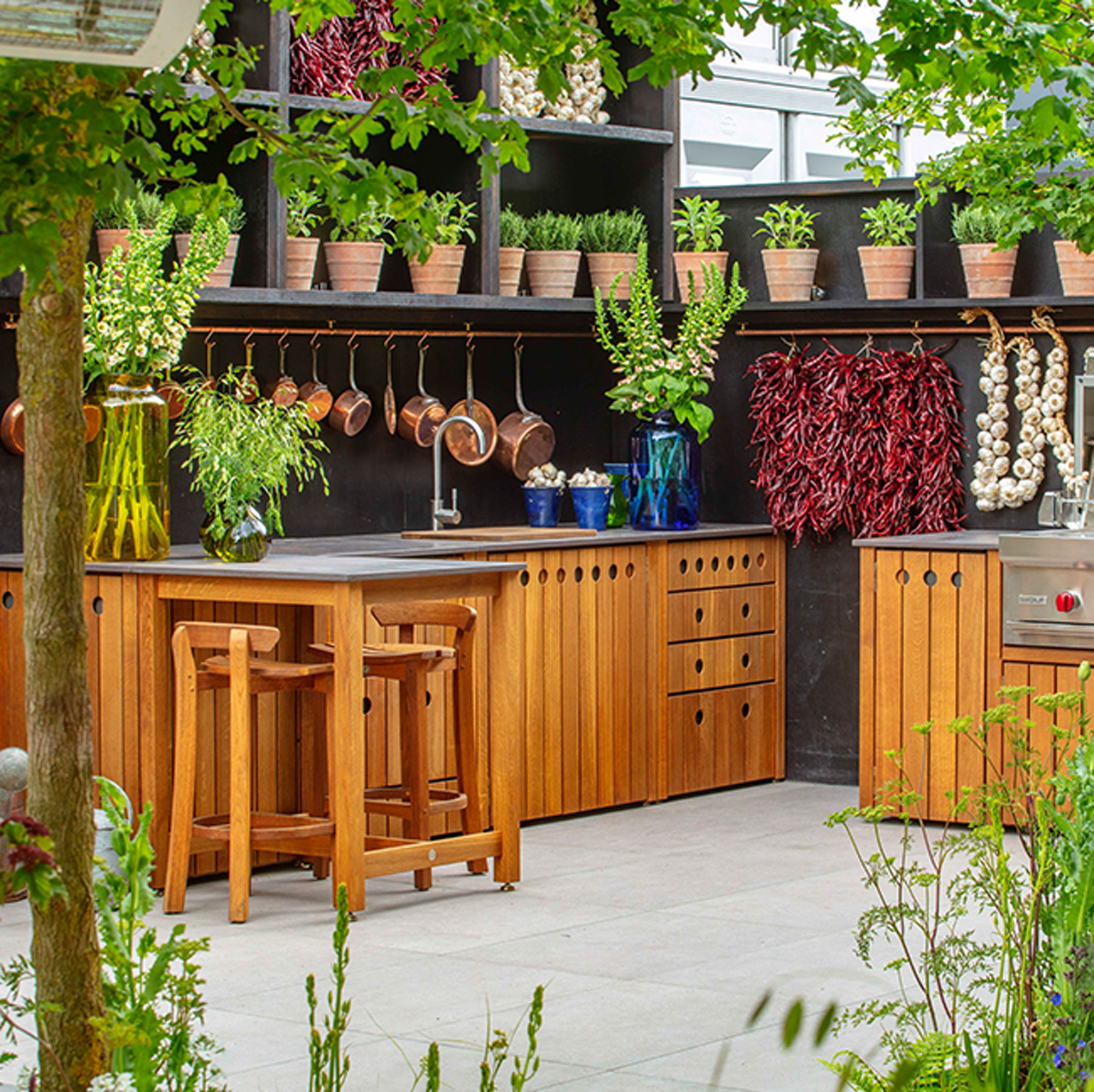
A good layout is key, whether it’s an indoor kitchen or an outdoor kitchen. Plan your layout with the sink, oven and fridge positioned in a compact ‘work triangle’ which will allow for plenty of prep space, while still keeping everything within easy reach.
Protect an outdoor kitchen from the elements by positioning it in a sheltered spot or underneath a timber gazebo. Keep an outdoor sink clean and free from leaves, dirt and debris by covering it when not in use. Inset sinks will often come with a cover, or use a wooden board as an alternative.
7. Invest in an extra-tall tap
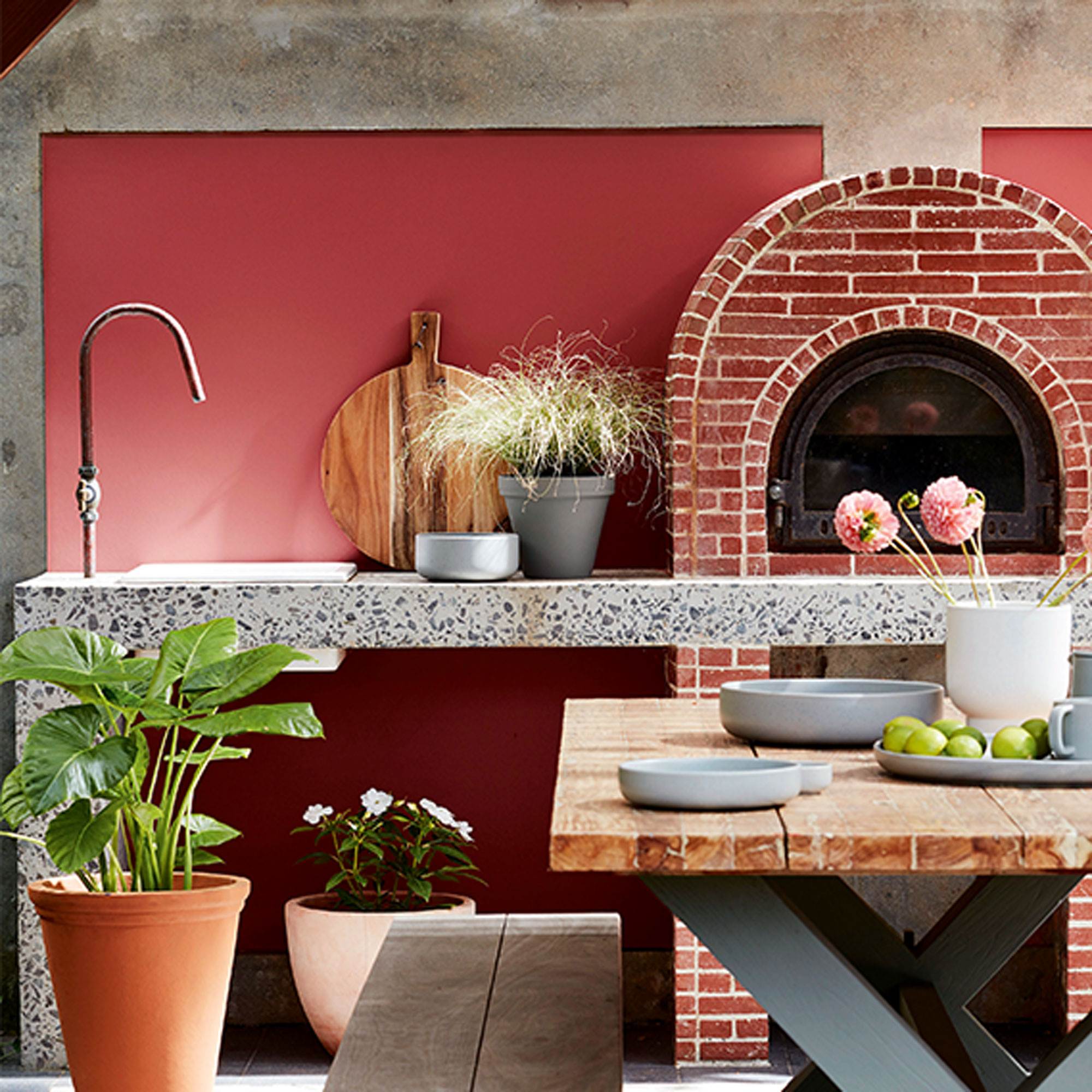
Put some thought into the style of tap you choose when installing an outdoor sink. As with the sink, it will need to be durable, stand up to direct sun, wet weather (and sometimes snow), so should be made of a solid and non-corrosive metal, such as stainless steel, copper or brass.
Choosing an extra-tall tap will make it easier to manoeuvre larger items into the sink, such as grill racks and pans, while a tap with a swivel head or pull-out spray will enable the water to be controlled more easily so it can reach all areas of the sink.
8. Upgrade an outdoor work space
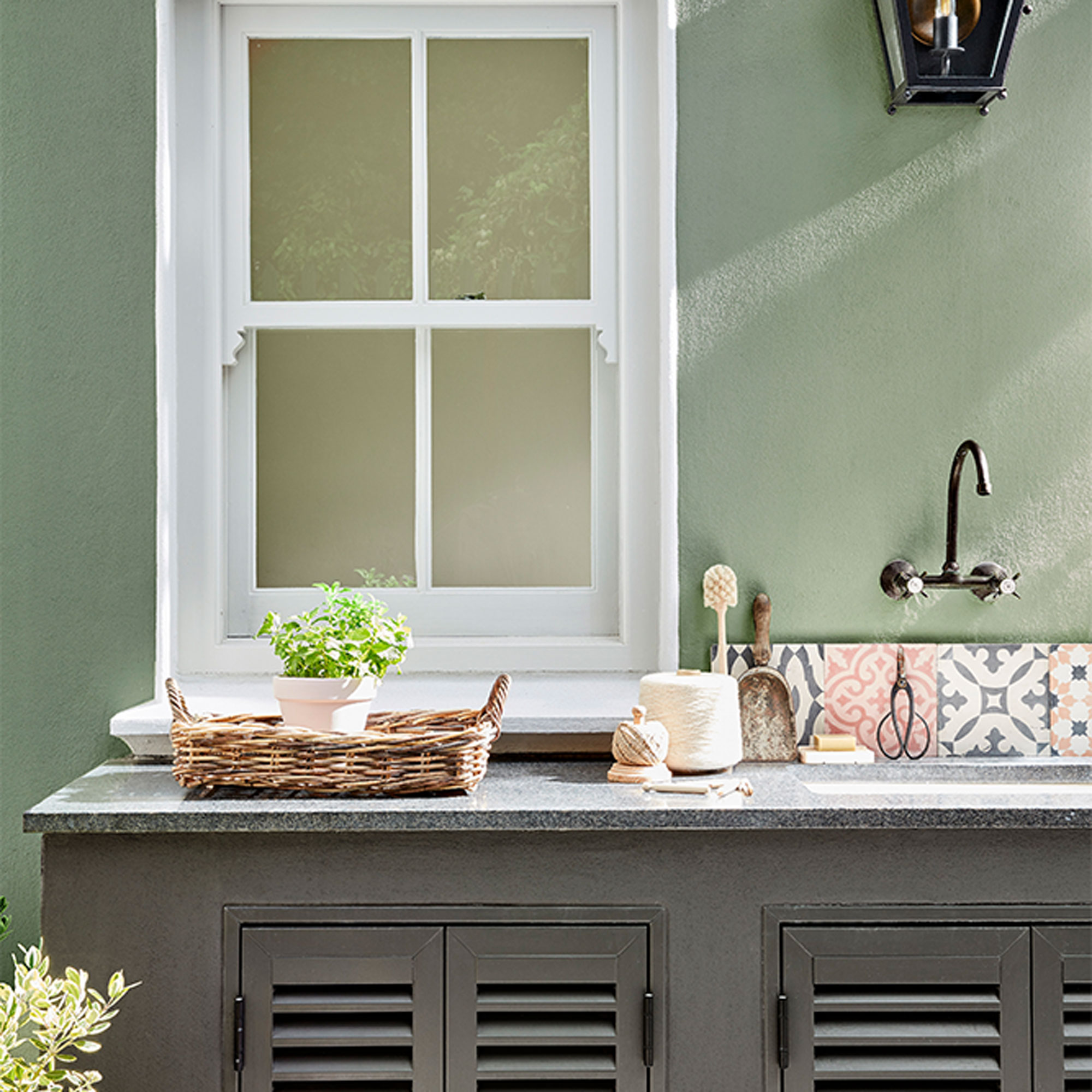
Aside from their obvious benefits in an open air cooking space, outdoor sinks can also be super-useful in utility areas too. Whether it’s an indoor/outdoor laundry space, porch, boot room or general pottering space, a dedicated outdoor sink for muckier tasks will prevent mud and dirt being tracked inside.
Opt for a sturdy, weatherproof worktop that can withstand the elements, such as a natural stone, quartz or rust-proof stainless steel, with undersink units painted in a practical wipe-clean exterior eggshell.
9. Go for an all-weather outdoor sink
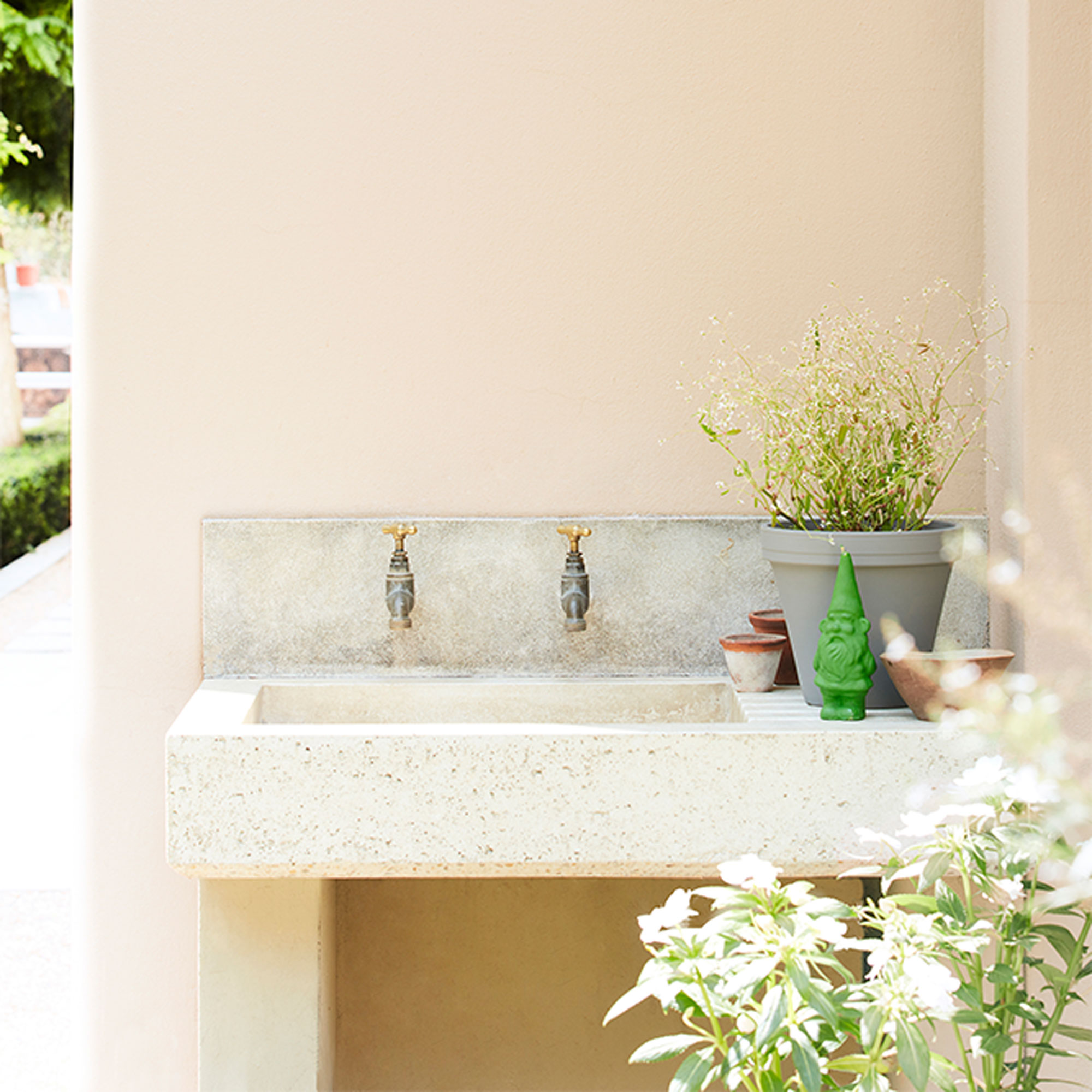
As any keen gardener will know, muddy boots, shoes and gloves can be a pain when going in and out of the garden, so an outside sink by the back door is a useful addition. It will provide water for plants and flowers, plus somewhere to clean mud and dirt off tools, pots and footwear. Opt for a robust all-in-one material with built-in drainer that will require less maintenance than individual components.
An outdoor sink by the back door can also come in handy as a clean-up spot if there are pets and little ones, preventing muddy boots or paws being walked through the house.
10. Plump for a potting bench sink
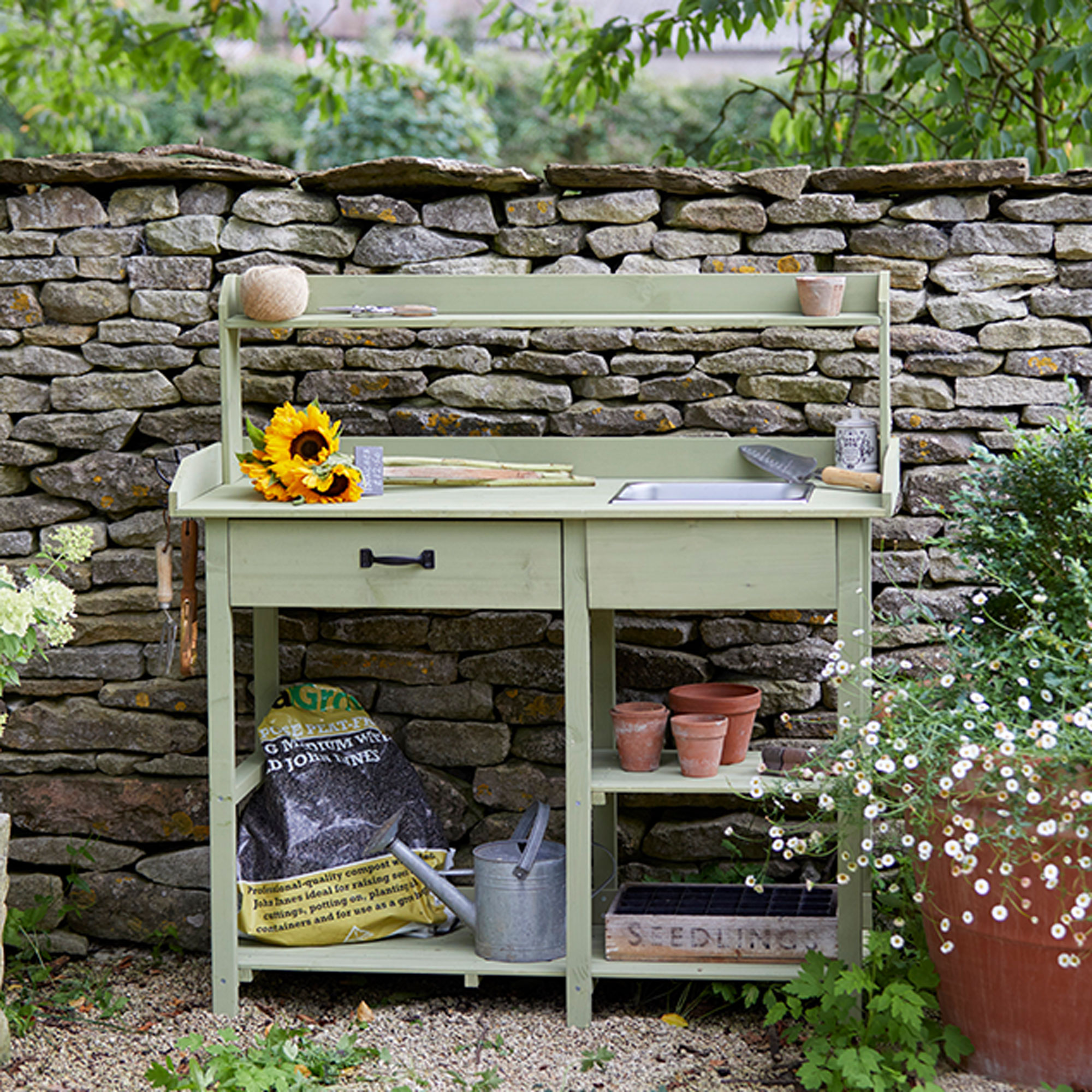
Another useful option for gardeners, a potting bench with built-in basin will come in handy when potting up outdoor plants and flowers. A detachable basin can help collect soil, debris and other material, that can be easily dumped into the compost bin, while a sliding lid over the sink will double-up as a work surface when not in use. Designs vary, from simple benches with just a bowl inset, to plumbed in versions with fully working taps and sinks.
What kind of sink is best for outside?
Inside or out, sinks are designed to be in constant contact with water, so most standard kitchen sinks can be adapted for use outdoors. However, the harder-wearing and more durable the material, the longer-lasting any outdoor sink will be. Stainless steel is an ever popular option as it will resist corrosion, erosion and staining. Opt for brushed stainless steel, rather than polished, as it won’t create as much glare in the sun and the finish will disguise nicks and scratches better.
Natural materials, like stone granite and concrete also make hardy choices for outdoor sinks, although they can be quite heavy, so the under sink support or unit will need to be sturdily built to cope with the extra weight.

Lisa is a freelance journalist who has written about interiors for more than 25 years. Previously editor of Style at Home magazine, she has worked on all the major homes titles, including Ideal Home, Country Homes & Interiors, 25 Beautiful Homes and Homes & Gardens. She has covered pretty much every area of the home, from shopping and decorating, crafts and DIY to real homes and makeovers and now regularly writes gardening stories for Ideal Home.